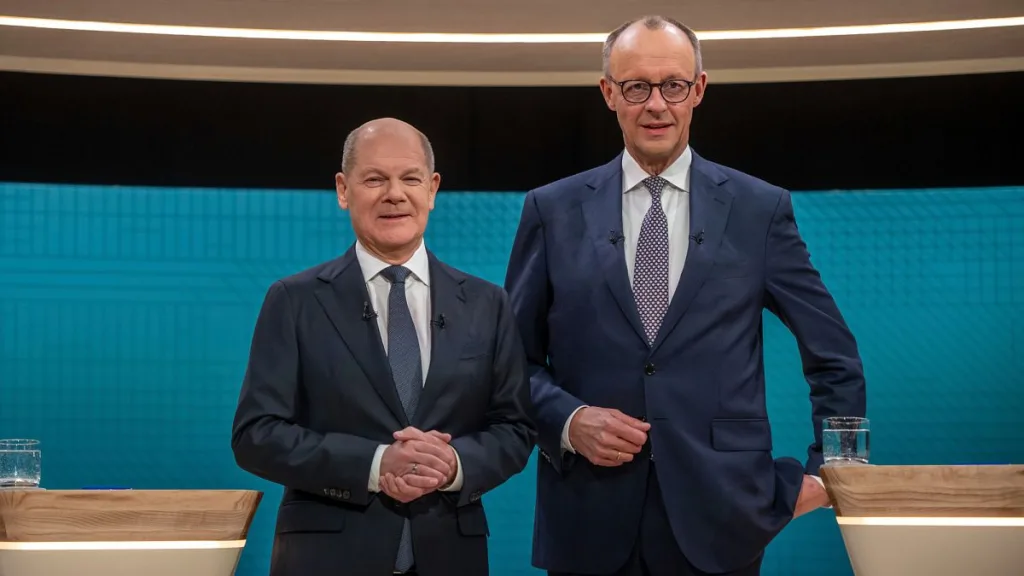The leader of the Christian Democratic Union (CDU) has indicated that Germany might need to reconsider its debt limit in order to increase defense spending, although he emphasized that alternative solutions should be explored first.
Friedrich Merz, a key figure in the lead-up to Germany’s federal elections, expressed his willingness to discuss reforms to the country’s debt regulations during a recent televised debate hosted by ARD and ZDF. He acknowledged that adjusting these measures could be essential to adequately fund an enhanced defense budget.
Responding to Merz, Chancellor Olaf Scholz of the Social Democrats (SPD) dismissed the notion that higher defense expenditures could solely rely on spending cuts or improvements in economic growth. He deemed such suggestions “ridiculous.”
When questioned about the prospect of loosening Germany’s debt brake, which restricts government borrowing to ensure fiscal discipline, Merz stated, “Everything is open for discussion, but that’s certainly not where we should start.” He argued that initial steps should focus on potential savings, fostering growth, and urgently restructuring the federal budget.
The debt brake currently limits Germany’s budget deficit to below 0.35% of the national GDP, aiming to mitigate the risks associated with excessive borrowing, such as rising debt servicing costs and potential tax hikes in the future.
Merz’s stance appears to diverge from the CDU’s official position, which has aimed to uphold the current spending controls. Nevertheless, several members within the party have advocated for reforming the debt brake, asserting that it contributes to Germany’s economic stagnation by obstructing necessary infrastructure investments that would enhance global competitiveness and support local businesses.
The German economy contracted by 0.2% last year, following a 0.3% decline in 2023.
Increased Defense Spending
During the debate, Merz acknowledged that defense spending could reach approximately 3% of GDP, though Germany is still falling short of its 2% NATO target. This shift is partly driven by pressure from the United States, with former President Donald Trump urging EU nations to bolster their military capabilities and aim for a defense budget of 5%.
“Europe fundamentally needs a significant increase in defense capabilities. To achieve this, our defense industrial base requires fortification,” stated European Commission President Ursula von der Leyen during a press conference in Brussels last week. She highlighted the long-standing underinvestment in defense and the urgent need to magnify defense spending.
The recent debate also sparked discussions regarding Germany’s immigration policies. Merz notably backed a non-binding motion aimed at stricter border controls, controversially receiving support from the far-right Alternative for Germany (AfD) party. This partnership ignited public protests across the nation, yet Merz contended that it was gaining traction among particular voter demographics.
Photo credit & article inspired by: Euronews



